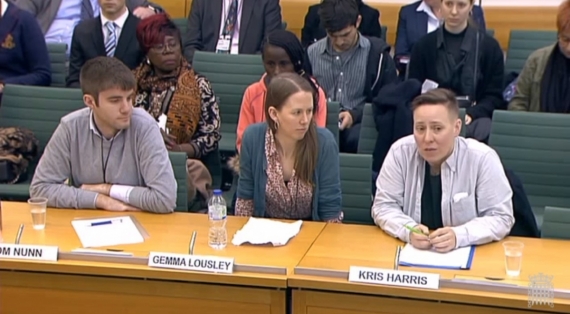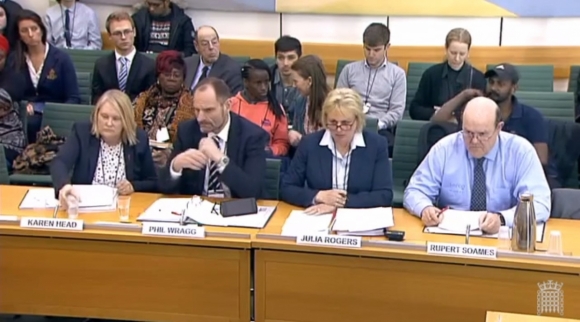'Digested Read' - Home Affairs Committee Evidence Gathering Session on Immigration Detention
On Tuesday March 20th, the Home Affairs Committee took evidence from Medical Justice, Bail for Immigration Detainees (BID), Women for Refugee Women, Serco and HMPPS Prisons Group on the subject of immigration detention. In particular, they were asking questions relating to Yarl’s Wood Immigration Removal Centre (which has recently been in the news because detainees have been hunger striking) and Morton Hall Immigration Removal Centre (where four people died in 2017). At the end of their inquiry, the Home Affairs Committee can be expected to produce a report.
The Committee took evidence on many facets of detention, questioning both the system as a whole and the way in which individual centres are run. Many of the questions were focused on the detention of vulnerable people, questioning why safeguards were not working and attempting to ascertain whether centre management was to blame or whether this was a systemic issue.

The NGO panel made few criticisms of centre management and the running of individual centres and saved their criticism for the system as a whole, the lack of a time limit, the failure of the Adults at Risk policy, the ongoing detention of vulnerable people and the harmful nature of detention itself. There was some disagreement between Labour MP Stephen Doughty and the NGO panel on the issue of people who are detained at the end of a prison sentence, with Doughty firmly questioning whether detainees were put at risk by being housed with ex-Foreign National Offenders. Questions were asked about the use of drugs in centres and about Rule 35 reports and initial screening processes. When asked why safeguards were failing, BID said that there was a huge lack of trust and that this process was being undermined by the Home Office (the example given was punitive measures made to accelerate deportations for those on hunger strike). This was echoed by the other NGOs.
During the second session, the Home Affairs Committee questioned both Serco and HMPPS holding them to account over issues such as why Rule 35 reports take so long to reach a conclusion and why vulnerable people continue to be detained.

HMPPS and Serco both acknowledged that the Adults at Risk policy had not led to a reduction in the numbers of vulnerable people detained. HMPPS also said that the lack of a time limit on detention interfered with their ability to properly care for detainees (and “provide hope”) and Serco pointed out that regardless of the Home Office position, detention was indefinite from the perspective of those detained because they knew of no end date. During the session, Serco identified issues with Home Office policies, over which they obviously have no control, and the provision of medical facilities at Yarl’s Wood (contracted to G4S). The Chair concluded the session by saying to Serco and HMPPS that “if you were really doing your job to properly look after the welfare of the people in the detention centre you would surely be raising the red flag a lot about all of those cases that were going wrong.”
The session can be viewed online and the transcript can be read in full here with submitted written evidence.
We have written a summary of what was said, including key quotes, on our website.




